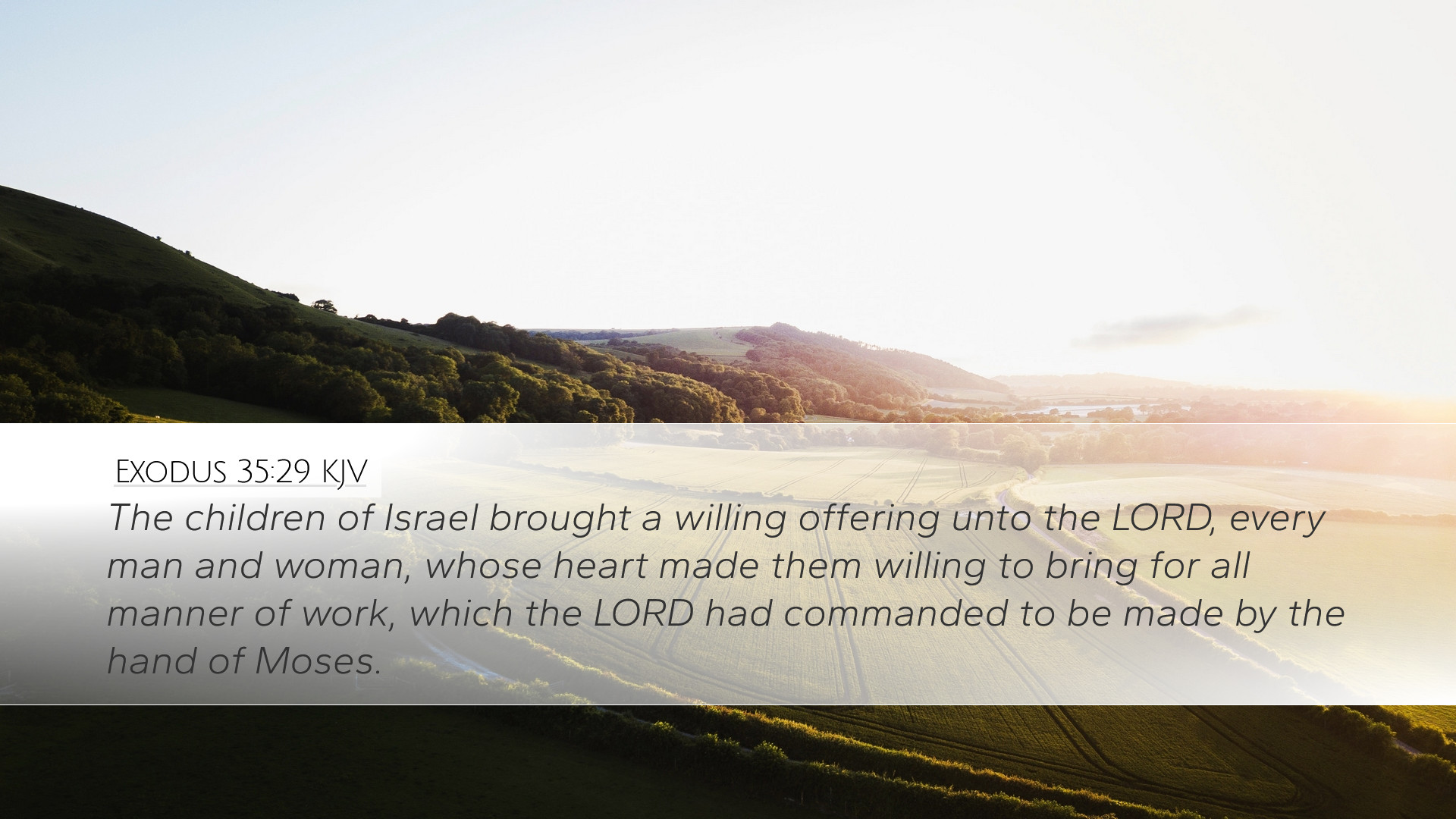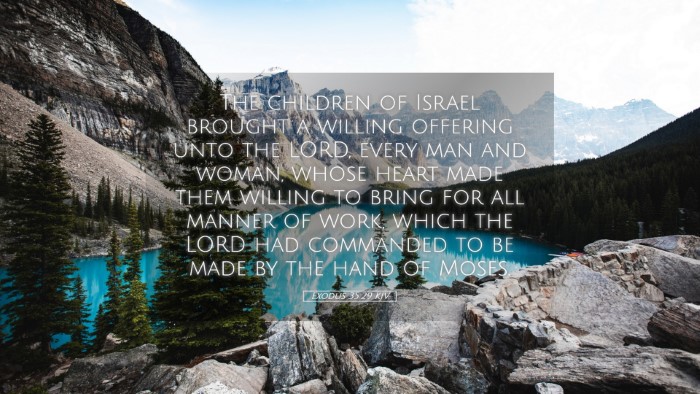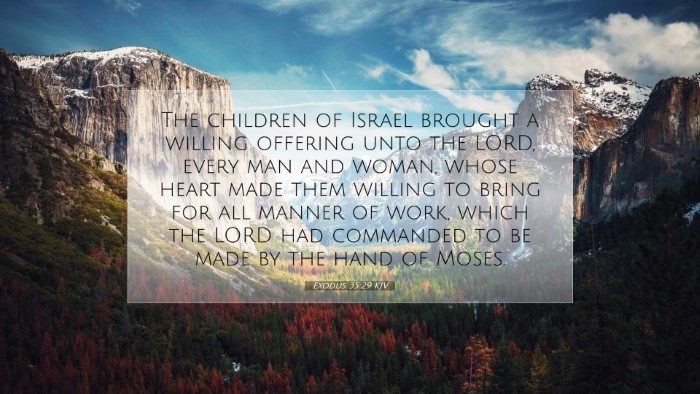Commentary on Exodus 35:29
Verse Context: Exodus 35:29 states, “The children of Israel brought a willing offering unto the Lord, every man and woman, whose heart made them willing to bring for all manner of work, which the Lord had commanded to be made by the hand of Moses.” This verse encapsulates the spirit of generosity and obedience that characterized the Israelites during the construction of the tabernacle.
General Observations
This passage serves as a significant moment in the narrative of the Exodus, where the focus shifts from liberation to worship through the building of the tabernacle. It highlights the importance of voluntary giving and the motivation behind such contributions.
Insights from Commentators
Matthew Henry's Commentary
Matthew Henry emphasizes the notion of willing offerings in this verse. He notes that God desires gifts that are given from the heart rather than those given under compulsion. Henry asserts that this willingness signifies a genuine devotion to God, reflecting an understanding that all belongs to the Lord. He writes:
“The freewill offerings of the people were acceptable to God, which suggests that true worship involves not merely obligation but a heartfelt response to God's love and grace.”
- Heart of Generosity: The Israelites’ willingness to contribute served not only the construction of the tabernacle but also fostered a communal spirit of generosity and unity.
- Divine Approval: Their contributions were in accordance with God's command, highlighting that God blesses those who give in response to His grace.
Albert Barnes' Notes on the Bible
Albert Barnes offers a perspective on the communal aspect of the offerings presented by the Israelites. He observes that these offerings came from both men and women, showcasing a collective engagement in the worship process. Barnes notes:
“It was a joint effort of the community, which indicates that every individual has a role to play in building God's house.”
- Role of Individuals: Each individual, regardless of gender, had the privilege and responsibility to contribute, which affirms the notion that participation in worship is inclusive.
- Collective Obligation: This verse emphasizes that every member of the community is accountable for facilitating the work of the Lord.
Adam Clarke's Commentary
Adam Clarke interprets this verse by discussing the nature of the offerings made. He points out the contrast between the Israelites' willingness and the demands they faced in Egypt. Clarke explains:
“These offerings were a stark contrast to their previous hardships. Now, they willingly bring forth precious gifts to God, a reflection of their newfound freedom.”
- Transformation: The willingness of the Israelites to offer contributes to their identity transformation from slaves to a people blessed by God.
- Spiritual Freedom: The offerings signify not only a physical contribution but a spiritual expression of their relationship with God.
Theological Implications
The implications of this text extend beyond the historical narrative; they touch the theological understanding of worship and offering. The verse portrays an ideal framework for giving:
- Willingness in Worship: The emphasis on a ‘willing offering’ teaches that true worship involves heart alignment with God's purposes.
- God's Graciousness: It affirms that our gifts, however small, are significant when given in a spirit of love and devotion.
- Community Participation: The inclusion of everyone in the act of giving stresses the importance of communal worship and collective identity as God's people.
Practical Applications
For pastors, students, theologians, and scholars, the insights from Exodus 35:29 offer meaningful applications:
- Encouragement in Giving: Encourage congregants to give from the heart, fostering an environment where generosity stems from love and devotion rather than obligation.
- Community Engagement: Promote joint efforts in ministry work, emphasizing that every member’s participation is vital to accomplishing God’s mission.
- Spiritual Reflection: Challenge individuals to reflect on their motivations for giving and serving within the church, inspiring them toward a deeper relationship with God.
Conclusion
Exodus 35:29 serves as a profound reminder of the power of willing generosity in worship. The reflections from commentators like Matthew Henry, Albert Barnes, and Adam Clarke encapsulate the enduring biblical principle that God desires our hearts more than our material gifts. As believers today, we are called to reflect this willing spirit in all aspects of our worship and service to God.


